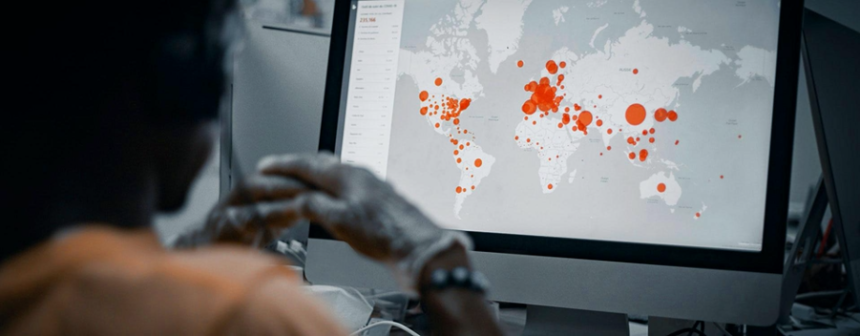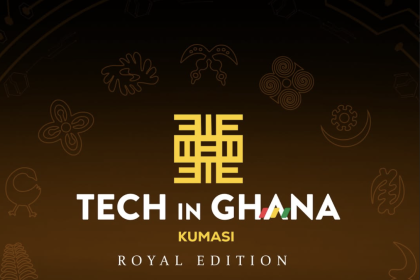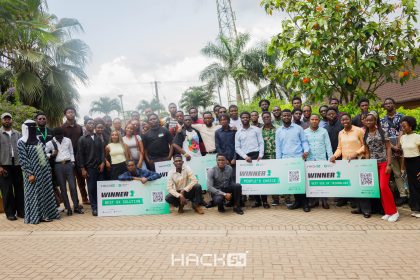Ghana, like many countries across the globe, is wrestling with COVID-19. Predictions are that in addition to the health crisis, social and economic implications for Africa will be severe without effective measures to stop the spread. The United Nations Development Programme (UNDP) has set up a Rapid Response Facility for vulnerable countries including in Africa.
In Ghana, the UN’s response to the health crisis is led by the World Health Organisation (WHO) while UNDP leads on the socio-economic response. UNDP is supporting the health care system to manage hazardous medical waste effectively and working with the Ghana Statistical Service (GSS) to assess COVID-19’s socio-economic impacts and identify recovery pathways. Other areas of focus include inclusive communication about risks, safe-guarding human rights, and protecting vulnerable groups.
Resilience and creativity are critical to fighting COVID-19 and UNDP’s global network of Accelerator Labs (AccLabs) is uniquely placed to support innovation at this time. In this blog, the AccLab (Ghana) outlines emerging local innovations and a forthcoming AccLab Innovation Challenge to support the innovation ecosystem.
Communication Is Key
All Government communication relating to COVID-19 is coordinated by the Ministry of Information, through digital and traditional channels. Given Ghana’s high mobile usage, (subscription penetration* was 136.7% in 2018) digital channels feature heavily.

Government has rolled out digital solutions to disseminate information and tackle the “infodemic” of false claims, including a 24/7 Coronavirus 311 Information Service helpline and WhatsApp chatbot. The Ministry of Health provides updates through Ghana Health Service’s website. According to Amazon’s web insights tool Alexa, internet traffic on the website has risen exponentially (by about 500%) since COVID-19 index cases were announced on 12 March 2020.
The public receives daily SMS tips about precautionary measures including hygiene, mental and physical well-being and preventing stigmatisation.
Other digital platforms include twitter handles for the Ministry of Health and Disease Surveillance Department (DSD). To support the Government’s efforts, UNDP is also running a social media campaign about COVID-19 facts, preventive measures. and actions to take when symptoms develop.

Observing Precautionary Measures, Assessing Symptoms and Getting Help
There is public education about precautionary measures, including frequent hand washing with soap under running water, but 6 million Ghanaians (1 in 5 of the population) do not have easy access to clean water, so compliance can be difficult. A solution is the ubiquitous “Veronica Bucket”, which was designed years ago by a Ghanaian inventor. This comprises a bucket with a tap, above a receptacle, to enable proper handwashing. Another solution is an automated solar powered hand washing machine.
Ghana’s President, His Excellency Nana Akufo-Addo has noted: “The front-line to the corona virus is your front door …. stay at home”. Social distancing measures are in place to reduce COVID-19 transmission. At the macro-level, an analytical tool developed by the Ghana Statistical Service (GSS) and Vodafone (Ghana) Ltd. uses anonymised, aggregated mobile data to estimate population movements. This could help in monitoring compliance with mobility restrictions if required.
Following recent Government rules, people are wearing cloth nose masks (not surgical or N95 masks for health care workers), while maintaining social distancing protocols.

Some entrepreneurs are producing and distributing free masks to local communities. Ghana’s Food and Drugs Authority has approved selected local companies to manufacture nose masks of the right quality. StopCovid19Ghana.org, a citizen-led initiative, is also using social media platforms to support communities through the pandemic.
Government has launched a COVID-19 Tracker App, which allows users to enter their contact information and coronavirus symptoms they may have so that health officials can contact them. There is also a home-grown Corona Virus Assessment Tool to help in assessing symptoms and in determining when medical help is required.

In collaboration with a private diagnostics company, the Kwame Nkrumah University of Science and Technology (KNUST), has developed a Rapid Diagnostic Test (RDT) for COVID-19. If approved by regulatory bodies, this could significantly augment Ghana’s current testing regime. Drones are also being used as a faster method of transporting COVID-19 test samples from health facilities in remote areas to testing laboratories. Scientists at the University of Ghana have also successfully obtained critical data about SARS-Cov-2’s genetic composition. This genome sequencing can strengthen the tracking of virus mutations and help with the tracing of community infections.
Since the pandemic began there have been concerns globally about the supply of the ventilators which are used to manage COVID 19 cases. Ghana, like many other countries, is building its stocks of ventilators and local innovators have designed low-cost ventilator prototypes made from repurposed pipes and motors.
While some countries across the globe are gradually emerging from strict lockdown procedures there remains an urgent need for everyone to adhere to health protocols. A young Ghanaian innovator has developed a disinfection chamber which detects when a person enters the chamber and sprays a disinfectant mist over the entire body. This can be installed in public locations such as schools, markets or hospitals to complement other precautionary measures.
Exploring, Testing and Scaling Up COVID-19 Innovations in Ghana
Many innovations have emerged in Ghana to mitigate the risks of COVID-19 and these require further exploration, testing and scaling up as appropriate. In this regard, the AccLab in Ghana is planning an Innovation Challenge to support grassroots solutions and Ghana’s innovation ecosystem.
…
*The Report, Ghana 2019, Oxford Business Group










